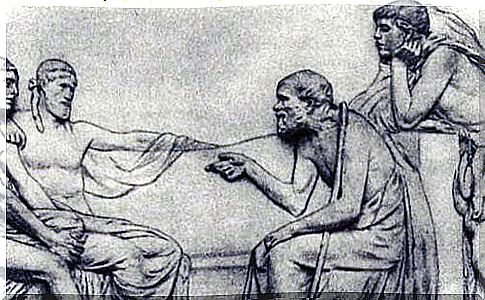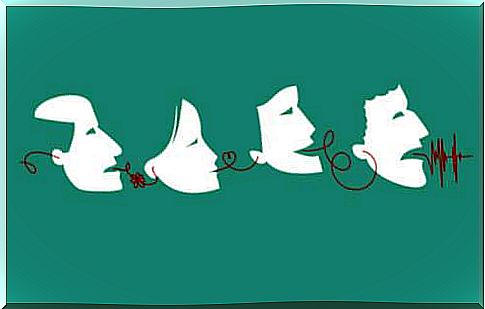Socrates Triple Filter Test

Socrates ’triple filter test refers to the anecdote of the great Greek philosopher, Socrates. Many see this anecdote as a great guide to life that can help us respond properly to the gossip and rumors we hear. This anecdote teaches us that we should not pay attention to all kinds of rumors, lies, insults, and unnecessary messages. The Socrates triple filter test can be applied to ordinary gossip and anything that comes up against social media.
According to this story, one day one of Socrates’s students was quite upset. He told Socrates that he had met one of Socrates’ friends and that he had spoken evil of him.
Socrates asked the man to calm down. After thinking for a while, he asked the man to wait a moment. Before he listened to what the man had to say, the message was to pass a triple filter test. If the message did not pass the three filters of the test, it was not worth listening to.

Socrates triple filter test
This famous Greek philosopher proceeded, as usual, by questioning. He asked his angry student the following question: “Are you absolutely sure that what you are going to tell me is true?” The student pondered the matter for a moment. In fact, he couldn’t be sure if what his friend had told him was, in fact, just malicious. This was the perspective from which it was considered. “So you don’t know if all he said about me is true or not?” , asked the philosopher. The student was forced to admit that he did not know.
Socrates then asked him another question: “Is what you are going to tell me a good thing or a bad thing?” The student replied that it was obvious that it was not a good thing at all. In fact, the opposite was the case. The man believed that what he was going to tell the philosopher would cause him anxiety and torment. Socrates said to him, “So you’re going to tell me something nasty, but you’re not entirely sure if it’s true .” The student admitted that this was the case.
Socrates then asked the third and final question, “Does what you are going to say about my friend help me?” The student hesitated for a moment. He really didn’t know if the information was useful or not. Maybe that would set him apart from his friend, but given that he wasn’t sure if it was true or not, it might not have been helpful at all.

Truth, goodness and usefulness
Eventually, the philosopher refused to listen to what his disciples wanted to tell him. “If what you want to tell me isn’t true, good or even helpful, why would I want to hear it?” , he finally told his student.
Truthfulness, goodness, and usefulness form the basis of the Socrates triple-filter test. Socrates thought a person should ask himself the following questions before he says anything: “Am I sure what I am going to say is true? “Is that what I’m going to say a good thing?” and “Do I really have to say that thing and is it useful?”
This triple filter test provides an excellent indication of both what we are going to say and what we should listen to. It forms the components of constructive communication.

How the Socrates triple filter test can be applied
Today, it is not easy to decide what is true, good and necessary. Because of this, there are also some additional questions that can help you apply the triple filter test. These are:
Truth filter: Do I know for sure that this information is true? Can I bet on it? Can I prove the truth to anyone? Am I prepared to damage my reputation because of this?
Goodness filter: Does it benefit me or another person? Does this thing make him or me a better person and does it evoke positive feelings? Will this information improve the situation of those involved?
Necessary or useful filter: Does this information improve the life of the person in question or my own life? Can the person concerned take any practical action on this information or message? In what ways does knowing this matter offend another person or affect that other person?
As we mentioned at the beginning, the Socrates triple filter test is particularly suitable for rumors and gossip. When we apply this test in practice, we can put an end to gossip. This also applies to other types of messages, such as those that we respond to on social networks.








